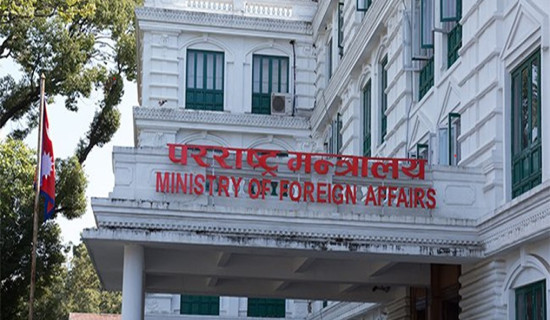- Wednesday, 4 March 2026
March Election Crucial
Free and fair elections are a major characteristic of a healthy democracy. Democracy without periodic elections is unimaginable. Sometimes, the government announces mid-term elections to avert or address political and constitutional crises. As Nepal faced a constitutional and political crisis after widespread unrest erupted on September 9, when the sitting prime minister had to resign and flee Kathmandu by army helicopter after the Gen Z movement turned violent, an interim government was formed, and the House of Representatives elected in 2022 was dissolved to fill the political vacuum. Dissolution of the House and formation of the interim government became necessary due to the situation that emerged immediately after the Gen Z movement. There was no alternative to address the crisis. The interim government formed under Prime Minister Sushila Karki recommended that the President dissolve the Parliament and announced the new date of the election. Accordingly, the country is now preparing for the elections scheduled for March 5, 2026.
The election will not only form the new House of Representatives but also restore national politics and the constitutional process to the right track. The Gen Z movement, launched demanding good governance and corruption control, culminated in a revolution, causing massive destruction of government offices and private residences. Only the constitution, drafted by the people-elected Constituent Assembly and promulgated in 2015, has remained intact. As such, only the successful holding of the elections on March 5, 2026, will safeguard the constitution. This underscores the importance of the upcoming elections.
The government and the Election Commission have already intensified their activities to hold the elections, while President Ramchandra Paudel and Prime Minister Sushila Karki have been holding meetings with political parties and other stakeholders to create a suitable environment to hold the elections. President Paudel, the other day, held a meeting with the Speakers of the House of Representatives and Provincial Assemblies and the Vice-Chair of the National Assembly and told them that it was imperative to move forward with a sense of shared responsibilities to successfully hold the upcoming elections to the House of Representatives in order to safeguard and further consolidate the constitution. Likewise, Prime Minister Karki, in her video message, urged all citizens to obtain their voter identity cards to make proper use of voting rights. Both the President and the Prime Minister have highlighted the importance of elections, while reaffirming their commitments to ensuring free and fair votes.
The most encouraging development so far is the move by the Biplav-led group to complete the party registration process. The Biplav-group led by Netra Bikaram Chand has posed a threat to each election since the second Constituent Assembly poll held in 2013, as it not only boycotted all five national and local elections but also made attempts to obstruct them. But this time, the group submitted application to the Election Commission seeking party registration on October 28, and has almost completed the process required for registration. The readiness of the group that boycotted all elections held in 2013, 2017 and 2022 shows how political parties are gradually coming to accept participation in elections. When a dissident group like the one led by Biplav is preparing to contest the elections, there is no justification for opposition to the polls by the mainstream political parties. As the elections of March 5, 2026, are essential to safeguard the constitution, as stated by the President, all political parties must now focus their energies on ensuring successful elections without any ifs or buts.














